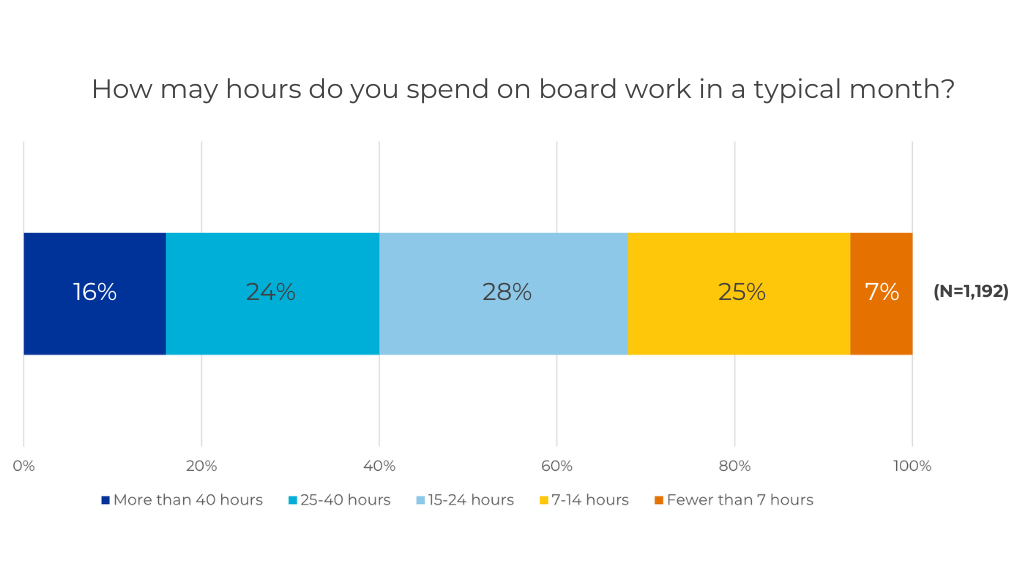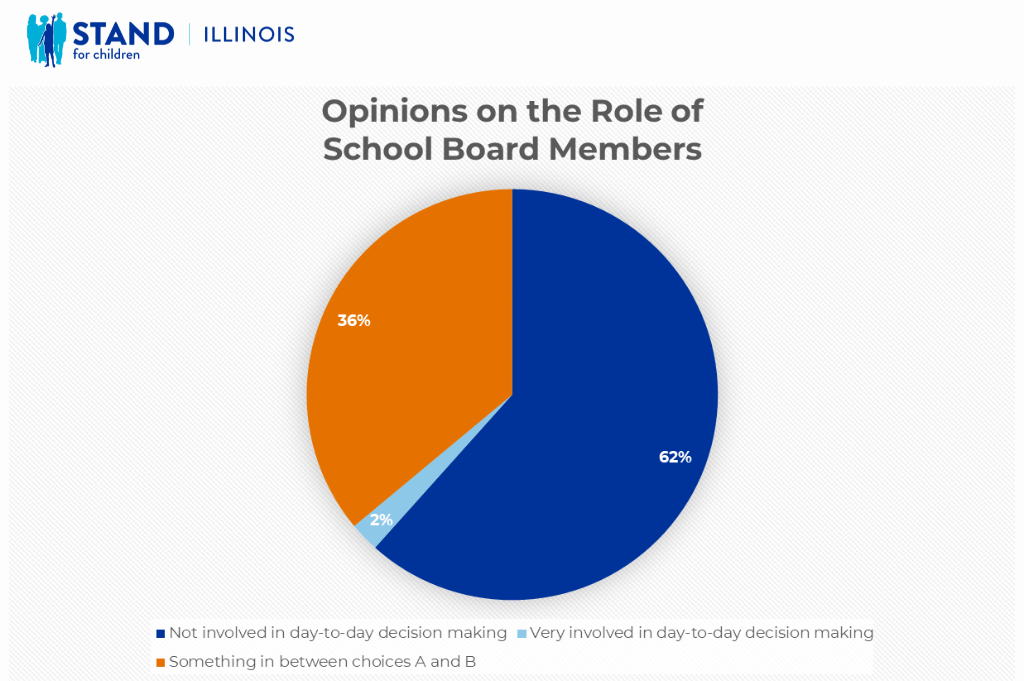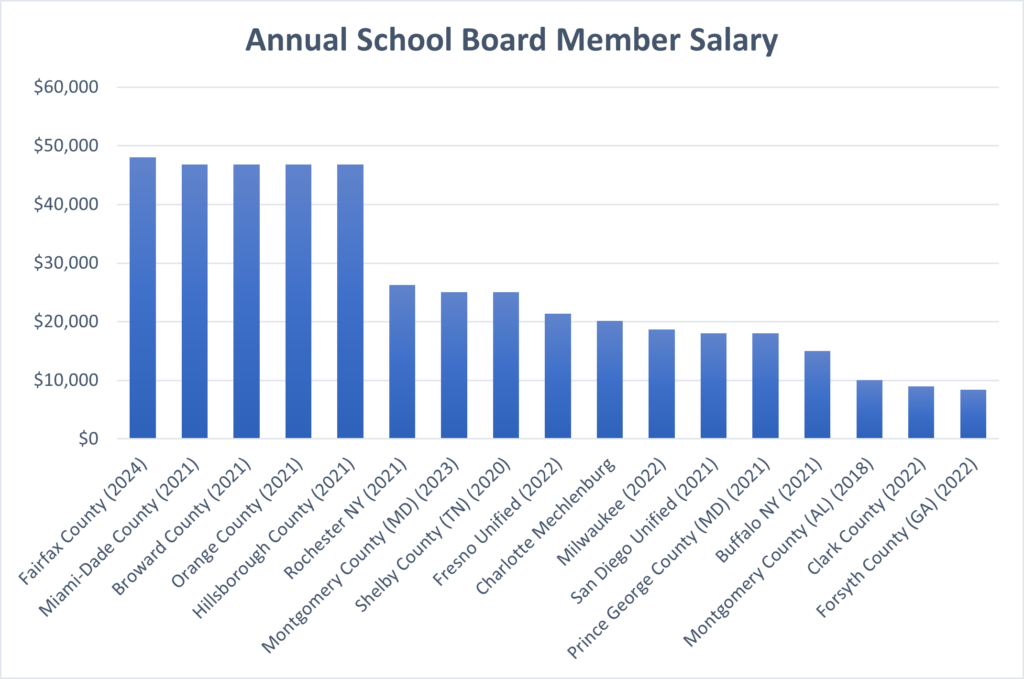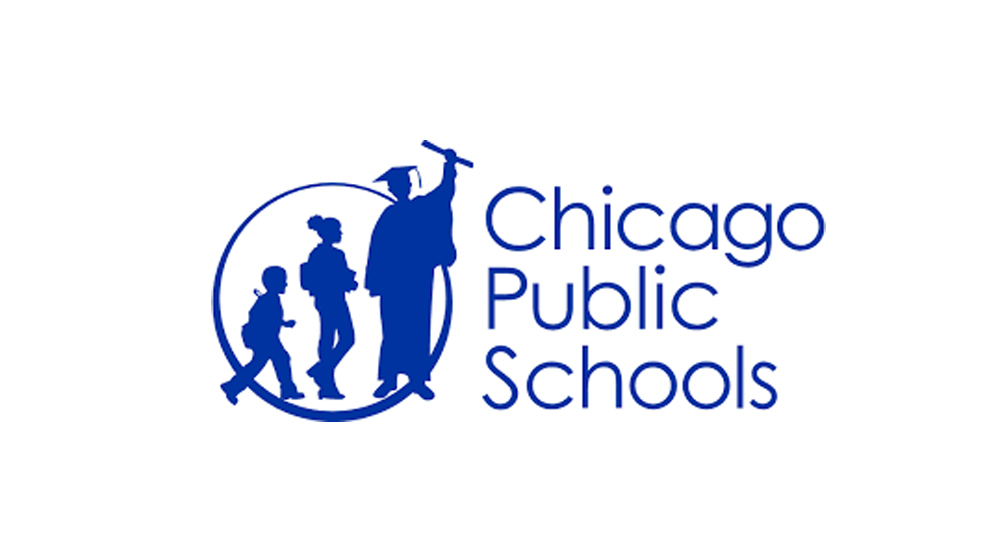Welcome to our third and final installment of this “Confused about Chicago’s Elected School Board?” blog! If you need to get caught up, Part 1 covers the timeline of the change, history of Chicago’s school board, and background on other Illinois school board structures. Part 2 recommends Ranked Choice Voting in the 2024 CPS school board election.
Today, we will finish up with another recommendation: allowing CPS elected school board members to collect a stipend for their work. In anticipation of this blog, we sent an informal survey to our members and others across Illinois to get their perceptions about this topic and inform our own position, and we’ve embedded those findings throughout the blog. (We’ve even decided to keep the poll open so others – like you! – can add their thoughts.)
What’s the role of a school board member?
As we started thinking about equitable board representation, the concept of compensation came up early on. But the question to start with really shouldn’t be whether school board members earn a salary; the real question to start with is: what is the expectation for the job of a school board member?
The school board’s biggest jobs are hiring the superintendent, setting district policies, and adopting a budget. But what does research say about best practices for school boards? The National Association of School Board compiled research from meta-analyses, case studies of high achieving districts, and studies comparing governance of similarly-situated schools with stark differences in outcomes. They concluded that high-performing school boards do eight things:
- Set high expectations and define clear goals to reach them.
- Have strong beliefs in the ability of students to learn and of the system to teach them.
- Spend less time on day-to-day operations and more time on setting policies that drive achievement.
- Maintain collaborative relationships with the community, educators, and families.
- Embrace and monitor data to drive continuous improvement.
- Align resources to meet goals.
- Lead as a united team with the superintendent.
- Participate in team training and development.
In another intriguing National School Board Association (NSBA) report, the group surveyed its members across the country and asked how many hours they spent on school board business. More than three-quarters of them reported that they devoted between 7 – 40 hours per month to school board duties.
That’s a significant chunk of time for a middle-class parent who has to take time away from their paid job and their family to serve on the board – but it’s also not a full-time salaried job.

Finally, we asked in our informal survey what Illinoisans thought was the appropriate role for school board members: hiring the superintendent and setting high-level goals for the district; getting involved in day-to-day district activities; or somewhere in between. Almost two-thirds want them focused on the big picture, and just over one-third chose something in between. Two percent of survey takers wanted their school board members closely involved in operations.

Why compensation?
Equitable representation. Most people can’t devote ten hours a week to an unpaid volunteer job, and those who can are unlikely to be representative of the communities they serve.
Yes, across Illinois school board members serve on boards for no compensation, and many are devoted to their districts regardless of how challenging it is to make it work with their competing responsibilities. But how many of them step down because it’s not sustainable? Ask your school board how hard it is to fit it all in – many will say it’s a tough balancing act and big sacrifice for their family.
The informal poll shows that statewide about 60% support paying school board members some amount of stipend or salary. Among Chicagoans, this is even more popular, with 73% saying they support compensation.
How much compensation?
A reasonable stipend, but not too much. (You’ll read more below about Los Angeles that moved to an elected board and recently gave itself a $125,000 salary… that’s not good for equity either, to be clear.)
That same NASB survey found 62% of its members were unpaid, but for larger school districts, paying board members is fairly common. LA’s $125,000 is the outlier… by far. Florida sets school board member salaries in statute at about $42,000… Some state laws (like CA’s and VA’s) allow compensation by law with a cap the varies based on district size, recognizing that leading a larger district takes more time. I’m particularly fond of FL’s law that sets base board member salaries by district size, tied to inflationary increases, with a caveat that it cannot be higher than the salary of a first year teacher with a Bachelor’s Degree.
To the right are some examples of amounts paid to school boards in large districts in the country.

All Illinois school boards are unpaid by law, but plenty of other Illinois boards and commissions have salaries or stipends for members, such as these appointed positions, which are held by professionals and expected to be full-time jobs:
| Board | Size | Compensation (Member) | Compensation (Chair) |
|---|---|---|---|
| Illinois Commerce Commission | 5 | $125,790 | $144,038 |
| Education Labor Relations Board | 4 | $100,945 | $112,157 |
| Illinois Human Rights Commission | 6 | $127,894 | $134,342 |
| Illinois Labor Relations Board | 8 | $112,157 | $100,945 |
| Pollution Control Board | 5 | $125,790 | $130,086 |
| Prisoner Review Board | 10 | $92,305 | $103,037 |
| Illinois Workers Compensation Commission | 10 | $156,253 | $164,066 |
And these appointed members, who investment significant time, but less than a full-time job:
| Board | Size | Compensation (Member) | Compensation (Chair) |
|---|---|---|---|
| Chicago Transit Board | 7 | $25,000 | $25,000 |
| Civil Service Commission | 5 | $27,212 | $32,676 |
| Concealed Carry Licensing Review Board | 7 | $39,127 | $39,127 |
| State Board of Elections | 8 | $40,379 | $62,809 |
| Executive Ethics Commission | 9 | $40,379 | $40,379 |
| FOID Card Review Board | 7 | $40,379 | $40,379 |
| International Port District Board | 9 | $20,000 | $25,000 |
| Illinois Liquor Control Commission | 7 | $36,598 | $41,825 |
| State Mining Board | 6 | $16,821 | $16,821 |
| Metra Board of Directors | 10 | $15,000 | $25,000 |
| Property Tax Appeal Board | 5 | $56,079 | $69,538 |
| Illinois Racing Board | 7 | $13,462 | $13,462 |
| Regional Transportation Authority Board | 16 | $25,000 | $25,000 |
| State Toll Highway Authority | 9 | $31,426 | $36,077 |
And these elected positions:
| Board / Body | Size | Compensation (Member) | Compensation (Chair) | |
|---|---|---|---|---|
| Chicago City Council | 50 | Varies: Min = $115,560, Max = $142,772 | ||
| Metropolitan Water Reclamation District | 9 | $70,000 | $80,000 | |
| Cook County Board of Commissioners | 17 | $93,500 | $187,000 | |
We asked our own polltakers to choose among a handful of salary ranges and by far, modest amounts were more popular. Seventy-seven percent of compensation-supporters think the most appropriate stipend amounts are under $40,000.
Keep up the Transparency
One more thought… before the first elections were to take place, the law required a financial entanglements report and an ISBE response report. But this is a big change and we hope the legislature will add some additional reporting requirements so we can keep shining a light on this process as Chicago shepherds in its first elected school board. We propose an interim report a year after the 2024 election that includes information like: how are the financial disentanglements going and how has that impacted the fiscal health of the district? How much staff time is being allocated to managing the new board? After the 2026 election, additional questions, such as school climate survey data, teacher retention, and academic outcomes, should be included as well.
Next Week
Next week is Veto Session, beginning October 24 and ending November 9. We could see some major action on this issue in the next month, or we could see the issue punted until spring session. In the end, it will be more important to the future of the students served by CPS to have this transition done responsibly, smoothly, equitably, and thoughtfully than to have it done quickly; we look forward to seeing what unfolds and supporting that smooth transition however we can.





